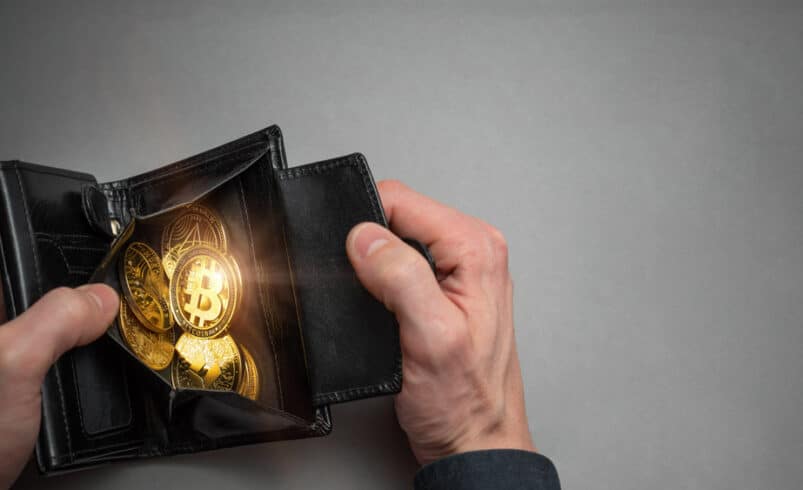A Comprehensive Guide to Understanding Crypto Wallets and Their Significance

Crypto wallets are critical elements of the cryptocurrency ecosystem and entail devices utilized to store and manage cryptocurrencies. They store the cryptographic keys needed to access digital assets and allow one to carry out transactions on blockchain networks.
Crypto wallet holders can utilize their private keys to hold, move, or receive cryptocurrency. Despite popular belief, crypto wallets do not physically store cryptocurrencies. Instead, the wallets are entry points that offer users access to the blockchain.
The user’s public and private keys are stored in a wallet, enabling them to sign transactions and track their balance. Further, the wallet is a communication path between the blockchain and the user, allowing the safe transfer of funds by authenticating ownership and storing cryptographic keys.
Factors to Consider Prior to Picking a Crypto Wallet?
One should consider several factors before choosing a crypto wallet:
Accessibility
Users should question how frequently they might be required to access crypto. Hot wallets are perfect for regular transactions, while cold wallets are perfect for long-term storage.
Security
This should be the user’s primary concern when picking a wallet. It entails assessing security features such as two-factor authentication and multisignature support.
Supported Cryptocurrencies
The wallet must be compatible with the cryptocurrencies a person plans to utilize for storage and transactions. Preferably, the wallet must support several digital assets.
Cost
Despite hardware wallets possessing excellent security features, they might cost more upfront. On the contrary, despite the ability to download most software wallets for free, security issues are a concern due to internet exposure.
Users must find a balance between convenience, security, and cost.
Effective Practices for Crypto Wallet Security
To integrate security for crypto wallets, users should embrace a multifaceted strategy that entails the following:
Exercising Caution
Users should be cautious when discussing their crypto transactions or holdings, especially in public spaces or social media. Divulging details concerning transaction history, investing plans, or wallet addresses might leave funds exposed to malevolent actors.
Two-factor authentication (2FA)
Implementing 2FA needs a second form of authentication besides a password. This temporary code is sent to the associated mobile device, incorporating an additional security layer to crypto wallets.
Updating Software
It is critical to update the software with the latest security patches. Users must evaluate their gadgets for malware, avoid clicking on suspicious links, and refrain from downloading files from untrustworthy sources.
Monitoring Wallet Activities
Users should frequently evaluate their wallet’s activity and transaction history to spot dubious or uncommon activity. Wallets permit users to configure notifications or alerts for incoming or outgoing transactions.
In case abnormal behavior is identified, wallets should be quickly safeguarded.
Future of Crypto Wallets
In a rapidly changing world of digital finance, ensuring the safety and convenience of cryptocurrency wallets is critical. Other technologies are upcoming to improve the wallets’ usability and security.
Encryption with the ability to resist quantum capability guarantees the safety of digital assets from attacks by upcoming super-robust quantum computers, offering permanent security. The use of special physical traits such as facial scans and fingerprints makes it difficult for malevolent actors to access wallets.
Multisignature solutions are going to be easier for beginners and will be incorporated into standard crypto wallets, offering an extra layer without the normal intricacy. Automating security aspects such as transaction restrictions and recovery strategies with smart contract integration will result in crypto wallets being less susceptible to fraud and human error.
Decentralized identity (DID) permits users to acquire control of their identity and verify themselves without disclosing a lot of private data. Likewise, machine learning and artificial intelligence can identify strange patterns as well as possible security risks in real-time, offering proactive protection for crypto wallets.
Zone Crypto Invest provides exposure for numerous crypto businesses, and we invite you to join our community! Connect with us through our Telegram chat for any questions. Given the volatile nature of cryptocurrencies, always conduct thorough research before investing. Many articles on our website are sourced from guest writers or are paid content, and they might not reflect the views of Zone Crypto Invest's internal team. The opinions in these pieces may not always coincide with Zone Crypto Invest's stance. We do not vouch for the accuracy, quality, promotions, or any other aspects showcased on our platform. Please refer to our detailed terms of service and disclaimer for further information.








